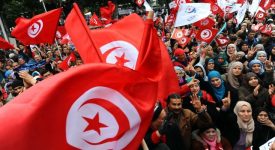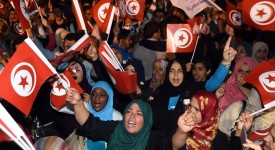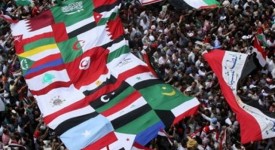The EU has developed over the course of recent decades various narratives, drivers, debates, policies and tools to cooperate with the MENA region. The main goals of the promotion of democracy, stability, and security in the MENA countries, as well as multilateralism, however, coexist with false dilemmas or perceived dichotomies regarding the EU’s role in the region.
These dilemmas have taken on a life of their own and have impinged on the EU’s ability (or inability) to realize the full potential of its relations with the MENA region. As such, the promotion of democracy has been perceived in opposition to the stability and security of the MENA countries and ultimately of the EU; the need to cooperate with the MENA governments has come at the expense of true engagement with their societies; and multilateralism and bilateralism have often been portrayed and pursued not as complementary but as alternative choices.
To that end, the EU has oscillated between two main directions and objectives: the first has been embodied in the promotion of democracy and of its transformative agenda in general, while the second has been the preservation of the status quo as the best guarantor of the MENA countries’ – and, ultimately, the EU’s own – stability and security. While the attempt was made to reconcile these objectives by promoting political and security cooperation at large, more often than not these two objectives have been conceptualized and concretely pursued as a dichotomy.
This entailed the need to choose between two alternatives, thus preventing the EU from developing a steadfast sense of direction. When circumstances in the MENA region as well as external pressures (such as that exercised by the United States in the context of the ‘War on Terror’) have made it increasingly difficult, unfeasible or simply ineffective from the standpoint of the protection of European interests to pursue democracy, human rights and the rule of law, the EU has veered towards stability and security as the most immediate concerns and objectives. Those shifts then also contributed to fostering the perception of conflicting priorities and goals of the EU. As a consequence, the EU’s inconsistency and lack of coherence between its discourses and some practices have been heightened.
In terms of international relations, the EU has relied on multilateralism both internally and externally to strengthen its position and impact. However, it has not always succeeded in this because multilateral governance and tools have sometimes suffered from multiple attacks both by the EU member states’ autonomous stances and as of late by the new course of US foreign policy under President Donald Trump. As a result, bilateralism has tended to prevail.
Moreover, recently and particularly after the Arab Spring series of uprisings, and in the light of the growing fragmentation of the region, the EU has preferred to fall back on purely bilateral relations, not as a complementary tool to the regional and regionalizing dimension but rather as an alternative to it. This is only another example that highlights the fact that the cooperation with the MENA governments cannot be an alternative to engaging with societies at all levels. Rather, the search for stability and security needs to be reconciled with the promotion of democracy.
‚A Half-Empty Glass: Limits and Dilemmas of the EU’s Relations to the MENA Countries‘ –
Working Paper by Silvia Colombo, Eduard Soler i Lecha, and Marc Otte – Barcelona Centre for International Affairs / CIDOB.
The Working Paper can be downloaded here







